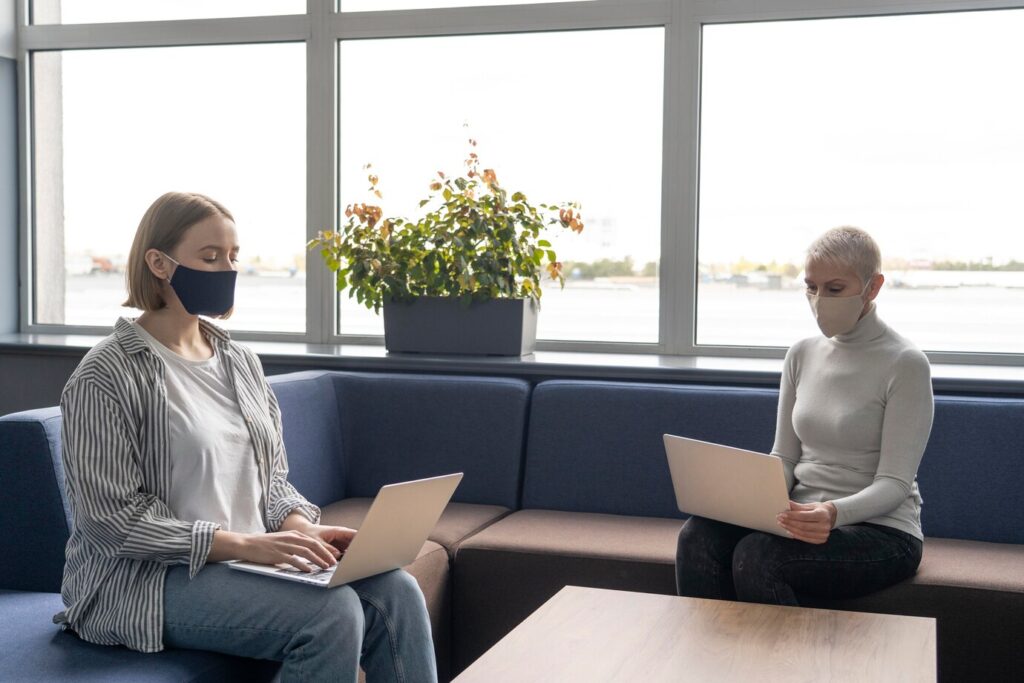Communication in Health and Social Care. Great Course. Very Easy to Understand
MSc Clinical Psychology

MSc Clinical Psychology
Overview:
This Clinical Psychology masters offers a comprehensive grounding in the understanding of mental health problems.
As well as modules that develop your knowledge of the aetiology and treatment of a range of psychological disorders and behavioural problems, the course has a substantial research element.
You will receive extensive training in research methods via a postgraduate statistics module and will complete a postgraduate dissertation in a related topic.
We have strong links with local NHS trusts and suitable students can benefit from dissertation and/or voluntary placement opportunities, when these are available
USW also has a Behaviour Analysis clinic, where students can participate in in-house supervised voluntary experience.
Please note that this programme does not confer Graduate Basis for Chartership (GBC) with the British Psychological Society. Applicants seeking this recognition should apply to our MSc Psychology (Conversion) course.
Online application form
Information requested on this form should be completed in as much detail in order to process your application successfully. All fields marked * must be completed.
Apply Now
Entry Requirements
A minimum 2:2 Honours degree in Psychology or Psychology major/joint honours.
The course welcomes international applicants and requires an English level of IELTS 6.5 with a minimum of 5.5 in each component or equivalent.
WHAT YOU WILL STUDY
The Clinical Psychology masters draws on the research and applied expertise of psychologists in the fields of clinical, health, sports, and forensic psychology. You will learn about a wide range of psychological disorders, dependence issues such as alcohol addiction and gambling addiction, and the interventions employed to help people. The Research Methods and Dissertation modules provide a strong emphasis on research.
The MSc Clinical Psychology is taught over one year (full time) or two years (part time). Full time students study 180 credits in one year, comprising of the following modules:
Full Time: Term One
- Perspectives on Psychological Disorders (20 credits)
- History, Concepts and Controversies in Mental Health (20 credits)
- Research Methods in Clinical Psychology: Measurement and Professional Issues (40 credits)
- Dissertation* (60 credits)
Full Time: Term Two
- Addictions, Dependency, Deviance (20 credits)
- Interventions (20 credits)
- Research Methods in Clinical Psychology: Measurement and Professional Issues (40 credits)
- Dissertation* (60 credits)
* Students will complete their 60 credit dissertation throughout the academic year, and submit it on the university submission deadline in September.
Part time students study the same modules according to the following timetable:
Part Time: Year One: Term One
- Perspectives on Psychological Disorders (20 credits)
- History, Concepts and Controversies in Mental Health (20 credits)
Part Time: Year One: Term Two
- Addictions, Dependency, Deviance (20 credits)
- Interventions (20 credits)
Part Time: Year Two: Terms One and Two
- Research Methods in Clinical Psychology: Measurement and Professional Issues (40 credits)
- Students will also complete a dissertation in Year Two (60 credits)
Teaching
The MSc Clinical Psychology is delivered through a variety of lectures, seminars, workshops, individual study, and one-to-one or small group dissertation supervision. Most of the teaching will be delivered by members of the teaching team and some by external experts in clinical practice.
There will also be student-led sessions and some elements will be delivered online. Academic staff teaching on this award are research active, so you’ll be taught by academics at the forefront of their specialist fields.
You will benefit from the expertise of specialists in a range of topics relevant to the field of Clinical Psychology (e.g., addiction, eating disorders, stress, reproductive health, mental health, suicide, etc.).
Contact hours:
- Tuesday 9am – 18.00
- Thursday 9am -13.00
Part time students: Contact hours are on Tuesday in Year One and Thursday in Year Two.
Dissertation supervision is additional to the hours above. The expectation is that (including contact time) full time students engage in 35 hours of study per week and part-time students engage in 17.5 hours of study per week (on average). Hours of individual study per week may vary with course demands.
Assessment
A range of assessment methods are employed, including essays, a systematic literature review, research reports, and case study analysis.
You will also complete a dissertation of 15,000. The variety of teaching and assessment methods used will foster a range of skills that are transferable to the workplace and/or further professional training.
COURSE DETAILS
This Clinical Psychology masters offers a comprehensive grounding in the understanding of mental health problems.
As well as modules that develop your knowledge of the aetiology and treatment of a range of psychological disorders and behavioural problems, the course has a substantial research element.
You will receive extensive training in research methods via a postgraduate statistics module and will complete a postgraduate dissertation in a related topic.
We have strong links with local NHS trusts and suitable students can benefit from dissertation and/or voluntary placement opportunities, when these are available
USW also has a Behaviour Analysis clinic, where students can participate in in-house supervised voluntary experience.
Please note that this programme does not confer Graduate Basis for Chartership (GBC) with the British Psychological Society. Applicants seeking this recognition should apply to our MSc Psychology (Conversion) course.
Additional Costs
As a student of USW, you’ll have access to lots of free resources to support your study and learning, such as textbooks, publications, online journals, laptops, and plenty of remote-access resources. Whilst in most cases these resources are more than sufficient in supporting you with completing your course, additional costs, both obligatory and optional, may be required or requested for the likes of travel, memberships, experience days, stationery, printing, or equipment.
CAREERS
This is a taught Clinical Psychology Masters programme and completion will not qualify you to practice as a Clinical Psychologist in the UK, nor guarantee acceptance onto a DClinPsy course. The skills that you develop will, however, enhance applications for professional training programmes, Assistant Psychologist posts, and Research Assistant posts in clinical settings and set you apart from applicants who have only an undergraduate Psychology degree.
Graduates could also progress to a postgraduate research. We welcome applications from self-funded students for postgraduate research degrees (including Masters by Research and PhD) in clinical / health psychology.
Example careers:
Clinical psychology doctorate programmes: These are extremely popular and competitive training courses and successful applicants are likely to have work experience in an appropriate setting as well as suitable qualifications. Applied research experience such as the collection of psychological data from an appropriate population will be a useful addition to an application for further training. The extensive research training and applied dissertation completed in this MSc programme will contribute to more robust applications to Clinical doctorate programmes.
Assistant Psychologist posts: These are sought after positions with many applicants for every post; not least because experience as an Assistant Psychologist can help support an application to clinical doctorate training programmes. Successful completion of this MSc programme will suggest a commitment to a career in clinical psychology as well as the development of skills and knowledge that are more advanced than those gained during an undergraduate degree.
Research Assistant posts: Excellent psychological research is extremely important in the field of clinical psychology. The extensive research focus and the dissertation completed in this programme will provide graduates with a range of research skills including the ability to critically evaluate literature, research, and applications in the field of clinical psychology, as well as experience in designing, conducting, writing up, and disseminating good quality psychological research. These are transferable skills that will be valued in a range of Research Assistant posts.
Fees
Full time
- 12 to 18 months
£7,250
You’ll study 9 modules in total (approx. 37 hrs/week).
Part time option one
- 12 to 18 months
£4,250
You’ll study 6 modules per year (approx. 25 hrs/week).
Part time option two
- 12 to 18 months
£5,500
Have a question about our professional qualifications?

Contact us about our professional qualifications
If you have any questions about our professional qualifications in finance and banking, please contact our customer services team.
Call us
- +44 (0) 203 771 5653
- admissions@westfieldcollege.co.uk
What Our Students Have To Say
Hi, I recently started Access to Higher Education Diploma (Nursing and Midwifery) course with Westfield College.
--Komal Kiran Galaria
DesignerMy experience with Westfield College is great. The supervisor and the admin team are proactive and efficient.

